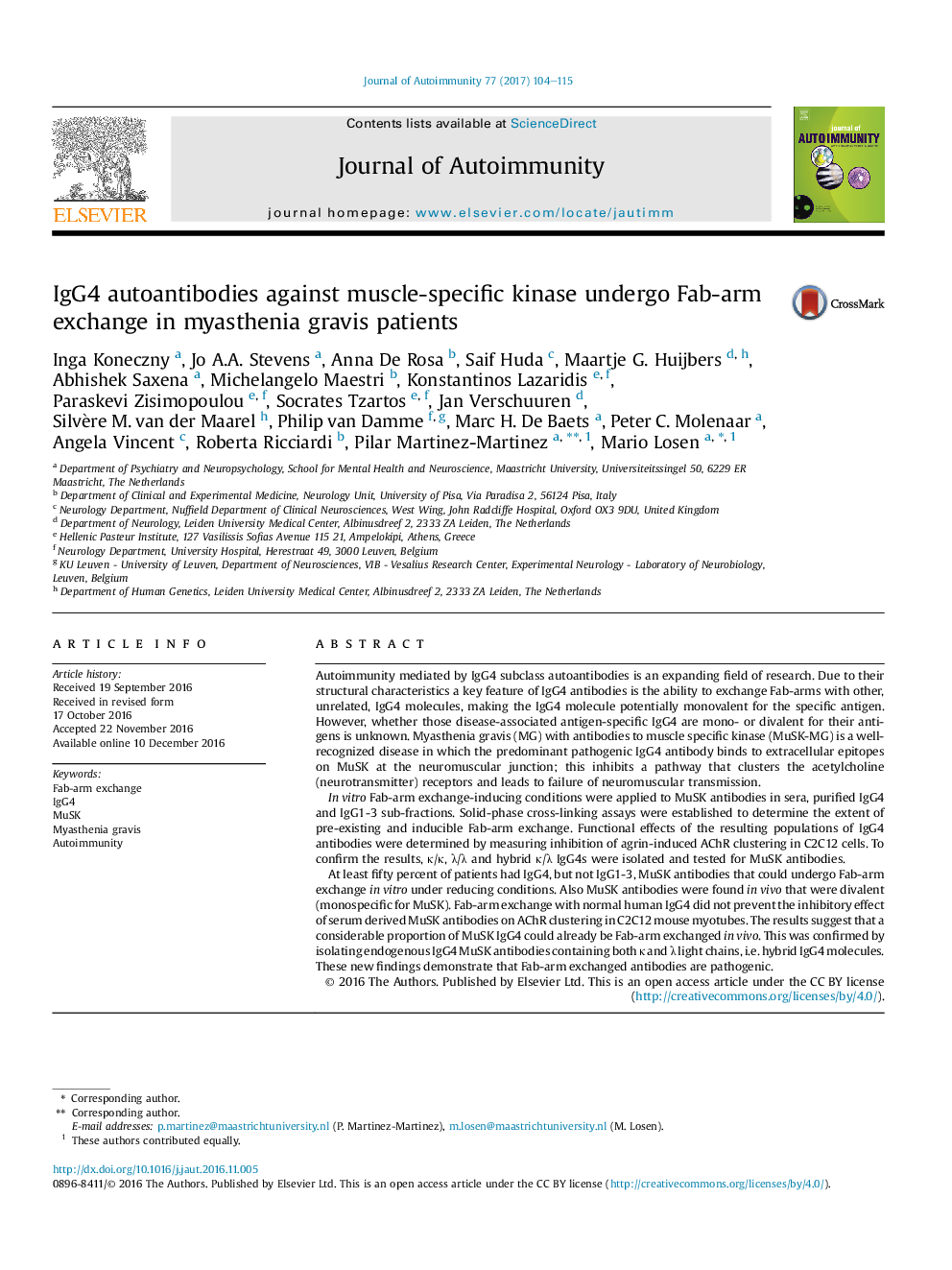| کد مقاله | کد نشریه | سال انتشار | مقاله انگلیسی | نسخه تمام متن |
|---|---|---|---|---|
| 5667922 | 1592272 | 2017 | 12 صفحه PDF | دانلود رایگان |

- MuSK autoantibodies can be induced to exchange Fab-arms in vitro.
- Fab-arm exchange is exclusive for the IgG4 subclass.
- Most MuSK autoantibodies are bispecific in vivo.
- Fab-arm exchange with normal IgG4 does not reduce pathogenicity in vitro.
- Monovalent MuSK antibodies are sufficient to cause disease.
Autoimmunity mediated by IgG4 subclass autoantibodies is an expanding field of research. Due to their structural characteristics a key feature of IgG4 antibodies is the ability to exchange Fab-arms with other, unrelated, IgG4 molecules, making the IgG4 molecule potentially monovalent for the specific antigen. However, whether those disease-associated antigen-specific IgG4 are mono- or divalent for their antigens is unknown. Myasthenia gravis (MG) with antibodies to muscle specific kinase (MuSK-MG) is a well-recognized disease in which the predominant pathogenic IgG4 antibody binds to extracellular epitopes on MuSK at the neuromuscular junction; this inhibits a pathway that clusters the acetylcholine (neurotransmitter) receptors and leads to failure of neuromuscular transmission.In vitro Fab-arm exchange-inducing conditions were applied to MuSK antibodies in sera, purified IgG4 and IgG1-3 sub-fractions. Solid-phase cross-linking assays were established to determine the extent of pre-existing and inducible Fab-arm exchange. Functional effects of the resulting populations of IgG4 antibodies were determined by measuring inhibition of agrin-induced AChR clustering in C2C12 cells. To confirm the results, κ/κ, λ/λ and hybrid κ/λ IgG4s were isolated and tested for MuSK antibodies.At least fifty percent of patients had IgG4, but not IgG1-3, MuSK antibodies that could undergo Fab-arm exchange in vitro under reducing conditions. Also MuSK antibodies were found in vivo that were divalent (monospecific for MuSK). Fab-arm exchange with normal human IgG4 did not prevent the inhibitory effect of serum derived MuSK antibodies on AChR clustering in C2C12 mouse myotubes. The results suggest that a considerable proportion of MuSK IgG4 could already be Fab-arm exchanged in vivo. This was confirmed by isolating endogenous IgG4 MuSK antibodies containing both κ and λ light chains, i.e. hybrid IgG4 molecules. These new findings demonstrate that Fab-arm exchanged antibodies are pathogenic.
Journal: Journal of Autoimmunity - Volume 77, February 2017, Pages 104-115